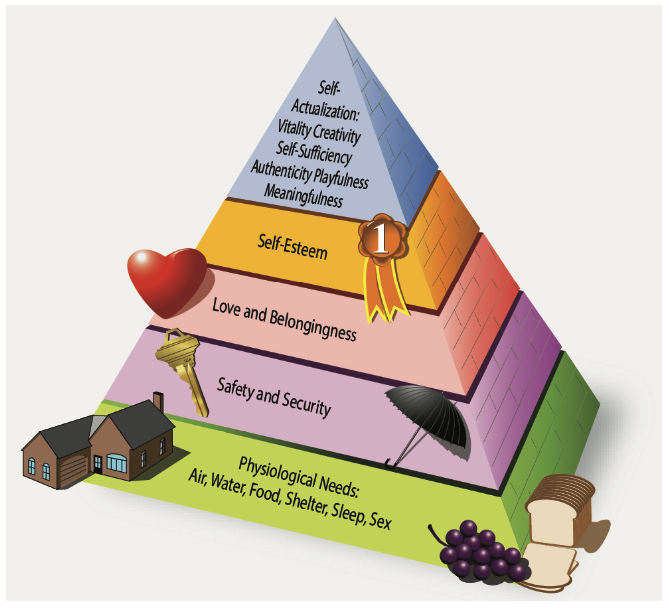Human Behavior
Instructor and Learner Relationship
- You will teach all sorts of people with different personalities
- Be aware of how your teaching style is compatible (or in compatible) with a students learning style
Human Needs and Motivation
- Theory X: All people are inherently lazy and avoid work
- Theory Y: Work is as natural as play and rest, as long you're properly motivated
Motivation
- Motivations can be positive or negative
- Negative motivation can be the result of fear
- Positive motivation is provided by the promise or achievement of rewards like financial gain, satisfaction of the self-concept, personal gain, or public recognition
- Positive motivation is essential to true learning
- Maintaining motivation
- Give praise during incremental successes in training
- "Challenge" the student to continue getting better
- Training plateaus are to be expected
- "What can you do with aviation"
- Play down the negatives when appropriate
Aviation Instructor's Handbook pg. 2-2
Maslow's Hierarchy of Needs
- Abraham Maslow studied human needs and motivation
- He discovered than certain needs take precedent over others
- Learners tend to show little to no motivation or attention if most of their needs are not met
- If a student is hungry, they will focus on that instead of a lesson
- If a student feels unsafe, they will be distracted by a flight response
- Utilize a pre-lesson evaluation of readiness
- Do you best to verify whether the learner is physically and mentally ready to learn

- Physiological
- Security
- Belonging
- Esteem
- Cognitive and Aesthetic
- Self-Actualization
Aviation Instructor's Handbook pg. 2-6
Defense Mechanisms
- Repression: A person places uncomfortable thoughts in an inaccessible area of the mind
- Denial: Refusal to accept external reality because it is too threatening
- Compensation: Emphasizing strengths in other areas to distract from or disguise a weakness
- Projection: Projecting the blame of a personal failing onto someone else
- Rationalization: Justifying poor performance on external factors outside of their control
- Fantasy: Daydreams about how thing should be or will be in the future, ignoring the current reality
- Displacement: Redirecting anger or frustration to someone or something else
Aviation Instructor's Handbook pg. 2-9
Learner Emotional Reactions
Anxiety
- A normal emotion for new pilot learners
- Can be minimized by making the experience pleasurable and introducing topics with care
Impatience
- Can be a large deterrent to student success
- Often learns only seek the objective, not the training steps taken to get there
- Train one step at a time
- Train at a pace appropriate for the learner, not too fast/too slow
Worry or lack of interest
- Learners who are worried or emotionally upset are not ready to learn
- Use the learner's enthusiasm and interests to get them engaged, and divert attention from worries and troubles
Physical discomfort, illness, fatigue, and dehydration
Any physical discomfort greatly affects the ability of a student to learn.
Air sickness
- End a flight as soon as symptoms are experienced
Fatigue
- Fatigue can be acute (short-term) or chronic (long-term)
- Acute fatigue accumulates as mental effort is utilized
- Only continue lessons if the learner is alert and performing at an expected level
- Acute fatigue can be indicated by:
- Inattention
- Distractibility
- Errors in timing
- Lack of awareness
- Irritability
- Chronic fatigue may have deep-seeded origins and requires a prolonged and deliberate solution
Dehydration and heatstroke
- The first signs of dehydration is fatigue
- Always carry an ample supply of water, and drink frequently
Apathy due to inadequate instruction
- Learners can be come disengaged when
- The instructor inadequately prepared
- Instruction is deficient, contradictory, or insincere
- Teach at an appropriate level
- Don't talk down to a learner
Aviation Instructor's Handbook pg. 2-12
Reactions to Stress
Stress will cause a flight or fight response in the body
- Normal reactions to stress:
- Normal individuals respond rapidly and exactly
- They will utilize their training and experience
- Abnormal reactions to stress:
- Inappropriate response to actions, like over-elation
- Extreme over-cooperation
- Painstaking self-control
- Big changes in mood from lesson-to-lesson
- Severe anger towards an instructor
Aviation Instructor's Handbook pg. 2-21
Teaching Adult Students
- Adults have certain expectations about what it takes to learn and succeed
- Adults tend to be very goal-oriented
- Adults tend to be self-directed and autonomous learners
- Need to feel independent and in-control
- Need to see the practical relevance of presented material
- Want to maintain their self-esteem and self-image
- Adults want to solve problems
- Instructors should
- Provide a clear training syllabus
- Clarify and articulate all learner expectations early on
- Refrain from “spoon-feeding” the learner
- Create opportunities for mutual planning